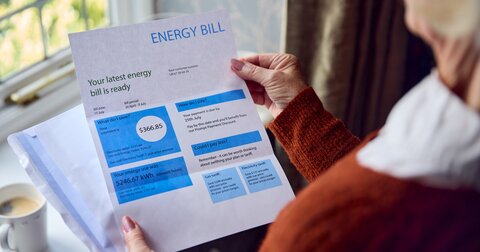National energy association warns of higher winter heating bills
Colder weather, bad policies to blame
Home heating costs nationwide will be higher this winter than last, according to the National Energy Assistance Directors Association.
The association, a trade group of officials who administer energy-focused welfare programs, blamed the spike on the expense of maintaining grids, higher costs of natural gas, and colder weather forecasts.
Some energy analysts, though, say the crisis has another cause: government policies that are driving up costs.
“Prices for home heating this winter on average are estimated to increase by about 10.5% from last year’s winter heating season due to expected colder winter weather in the Northeast and Midwest states from $889 to $982,” the association said in a press release.
Families who heat with electricity will see their costs rise from $1,063 to $1,208, a 13.6% increase, the association said. Households heating with propane can expect a 7.3% increase, with costs going from $1,343 last winter to $1,442.
The association expects the winter heating cost for natural gas users in the Midwest to increase by $40, slightly less than the $43 increase projected nationally. Midwesterners who use electric heat will pay another $225 in the coming winter, compared to a national average increase of $145.
These forecasts omit the role of federal policies in making home heating more expensive, said the Institute for Energy Research, a Washington, D.C., nonprofit that analyzes energy policies.
“Midwest states, including Michigan, are expected to see colder-than-usual temperatures this winter, but rising energy prices are primarily driven by supply limitations, not increased demand,” Alex Stevens, manager of policy and communications at the institute, told Michigan Capitol Confidential in an email.
The U.S. government under the Biden administration has “taken more than 250 actions deliberately designed to make it harder to produce energy here in America,” wrote Thomas J. Pyle, president of the institute. Those actions include numerous revocations of Trump-era policies that decreased regulations and made it cheaper to produce domestic energy. The Biden administration also instituted $150 billion in tax increases on oil and gas energy producers.
Stevens said that Michigan’s government has contributed to the problem as well. Michigan’s energy market is constrained by regulations, plant shutdowns and net-zero mandates. “Coal plants like Trenton Channel and St. Clair were closed in 2022, and more closures are expected in 2023 and 2024, reducing energy capacity,” he wrote. He also warned that wind and solar energy sources, favored by Gov. Gretchen Whitmer, underperform coal and natural gas.
Jason Hayes, an energy policy expert at the Mackinac Center for Public Policy, told CapCon that Gov. Gretchen Whitmer’s policies have worsened matters. Legislation the governor signed would make electricity more expensive, he wrote in 2021. And earlier this year, Hayes wrote that Whitmer’s net zero energy policies will cost households $1,500 to $2,750 and increase costs for years to come.
Michigan Capitol Confidential is the news source produced by the Mackinac Center for Public Policy. Michigan Capitol Confidential reports with a free-market news perspective.


 State climate conference to tout clean energy plans that will raise electricity costs
State climate conference to tout clean energy plans that will raise electricity costs
 Whitmer claims credit for helping Michiganders, but her policies raise costs
Whitmer claims credit for helping Michiganders, but her policies raise costs
 Trump administration sues Michigan over climate litigation against oil and gas companies
Trump administration sues Michigan over climate litigation against oil and gas companies

 Feedback mostly opposes Grand Rapids climate plan
Feedback mostly opposes Grand Rapids climate plan
 Drive less, use less energy, switch to electric vehicles, says Grand Rapids climate action plan
Drive less, use less energy, switch to electric vehicles, says Grand Rapids climate action plan